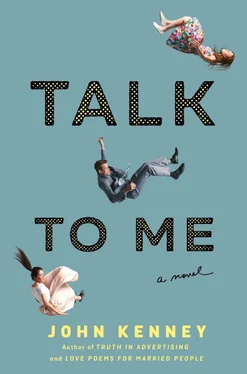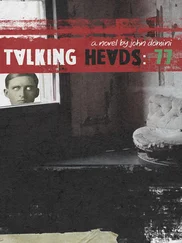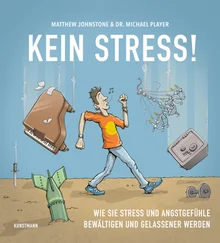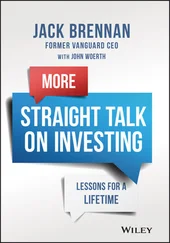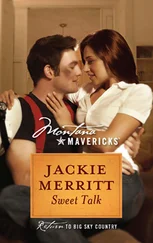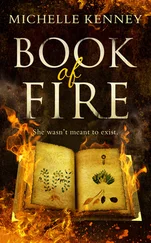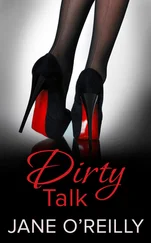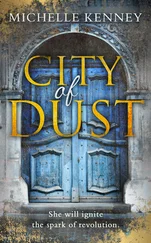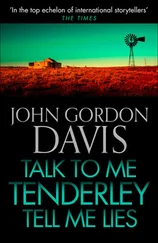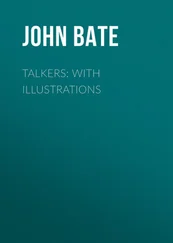He cleared his throat. “Thank you,” he said, quietly. He looked up at them. “You guys. Thank you. For…”
They applauded. And it moved him in a way that surprised him.
“Sorry. Quiet, please.” Sean. “In five, four, three…”
“This is my last broadcast as anchor of the nightly news. It has been a privilege being a small part of your evening five nights a week. I hope this broadcast and the remarkable women and men who make it happen each evening have helped you, in some small way, see the world more clearly. If not, if network news has failed you, then I have failed you as its managing editor. A few months after I first sat in this chair, something extraordinary happened at Cape Canaveral, Florida. A twenty-two-foot-high space probe called Cassini-Huygens rocketed into orbit for a twenty-year journey. It orbited Saturn, the second-largest planet in our solar system, for thirteen years. It had course coordinates, a detailed plan of work, a script by which to go. But, of course, that’s not how life works. We can plan but we cannot see what lies ahead. In my almost twenty years here, we have gone by a script each evening. But who among us could have imagined in 1997 the world we would see. Cassini traveled 4.9 billion miles since its launch. In that same time, we, as a nation, as a world, as individuals, have traveled a great distance, too. We live, today, in a world radically different than just twenty years ago. We have seen extraordinary advances in technology, communication, medicine, transportation. There is, contrary to so much of what we see and hear, remarkable hope. But something fundamental has shifted in America. The advances of technology are extraordinary. But we are living in a new, digital wild west. A world yet to be fully formed. A world lacking rules. So what now? We have a choice. In how we use technology to advance humanity. Kindness. Generosity. It is easy to become a skeptic sitting in this chair night after night. To become callous to the beauty and possibility of the world. My job, the media’s job, isn’t to share the news. It’s to share the worst. To horrify you. Imagine it was different, though. Imagine if the job was to inspire? Educate? Instead of show you the worst of who we are? If I have a regret—and I have many—it’s that we didn’t do that more. Demand that from the news. Demand that from media—social and otherwise. I am a kid from Woonsocket, Rhode Island, who never thought he would grow up to sit in this chair. It has been my honor and my privilege. Thank you for the opportunity. This is Ted Grayson. Thank you. And goodbye.”
How do you say “I’m sorry” in Polish?
The Realtor had asked Ted to leave the apartment. It was the first showing and they already had calls, along with two cash offers, from the listing on the Sotheby’s real estate website. The Realtor was actually a team. That’s how it was described to Ted, who would had preferred putting a listing in The New York Times , but that world had died. Now it was a video put on a website and a team of remarkably good-looking people marketing Ted’s apartment. “We’ll make no mention, of course, that it’s your place.”
• • •
In the days that followed the final broadcast, something seemed to shift for Ted. Not a resignation to this new reality but a lightness. Not joy by any measure. But an acceptance that his life, as he had known it for twenty years, was over. He stopped carrying his cell phone with him, stopped looking at his laptop. He knew only that he needed to leave. A plan began to form.
• • •
He walked. He had little need for sleep. He planned, took notes, searched online. A small doze here and there but the notion of eight hours of sleep seemed an epic waste. And now, of course, the apartment was largely empty. Claire had movers take the artwork, the fine rugs.
He walked. The air was cool, crisp, but the trees showed signs of life and flower boxes held pansies and daffodils. He wore a ski hat pulled down over his head, his beard unshaven for over a week. He bore little resemblance to that man on television. He wore headphones, a gift from Claire years before. He listened to music he’d come across on YouTube. Trappist monks chanting Latin hymns. He’d found it soothing.
He walked without destination. Side streets, his pace matched by the slow chanting, by the ancient dead language. People around him walked quickly, with purpose, even if they weren’t in a hurry. They were New Yorkers on a weekday and even if they were on the way to the corner store for half-and-half they walked as if they were late for a job interview. Perhaps it was the monks and their Latin. Perhaps it was his lack of sleep and the buzz of too much coffee. But he felt as if he saw people and the world more clearly. The stress on the woman’s face at the corner, holding one child’s hand and strolling another, who was mid-meltdown. Two women, eighty if they were a day, making their way down Fifth Avenue, turning into the park, heads down the whole way, knowing the route by heart. Ted imagined stale bread in their bags, an afternoon feeding birds and talking of… what? Ted envied them. Envied what he thought their life might be.
Along the side streets off the park now. Somehow, he had walked up to the Nineties and was in front of the Spence school and the lower grades were letting out, the girls in their uniforms and oversized cartoon-character backpacks. The monks chanted and the girls filed out, large-eyed, looking for their caretaker, which, if it was a mother, elicited a sprint and a neck hug, little soldiers returning home after years at the front. Ted imagined what happened next. Home for a snack and a rest. Then to swim lessons or piano lessons or a playdate. Later dinner, bath, bed. That’s what Claire used to say to Franny. Dinner-bath-bed, as if one word. Franny wanting always to know what was happening. Tell me the day , she would ask each night, before Claire or Ted left the room.
And still the monks sang. How different life is with a music track.
Into Central Park now. It appeared to Ted like a private country club. Like something in Bedford, only it was open to all and French tourists wandered by and couples sat on the lawn and young families kicked a ball. Bicyclists and runners. A tall Sikh man in a turban sat on a milk crate next to his “Nuts for nuts” cart, the sweet smell. Sun broke through dark clouds and the wind made it cool, but the winter was over and the tulips were up, daffodils, too, and the grass was an Ireland green and people needed to be outside, to walk or sit on the benches and look at the trees and the sky and breathe it in.
What did they do, these people, so many of them, that they were outside on a Thursday afternoon? Older women being helped by nurses’ aides and mothers strolling babies and Japanese tourists looking at maps. Here was an off-duty nurse and there was a young couple holding hands and there was an old man asleep on a bench, his chin on his chest, a book on his lap, a woman next to him, reading, holding his hand.
Near the Olmsted walkway two men, maybe twenty-five years old, had a good crowd gathered and were preparing to jump over eight people in a line. On a hill, a man was teaching a woman how to cast a fly rod. The yellow line snapping in the wind. In the playground the children squealed. A horse pulling a carriage went by, leaving the clean scent of manure. In the distance, someone must have been cutting the lawn. The smell almost brought tears to Ted’s eyes.
Ted bought a hot dog and found the taste sublime. Perhaps it was because he’d not eaten all day. Sodium. When he thought of hot dogs he often thought of sodium. A story they had done a while back. Hot dogs are high in sodium. Ted had looked at a chart that Jagdish shared. The periodic table of the elements. Every high school student had seen it. But Ted looked carefully. Bismuth. Seaborgium. Hafnium. These were elements. There were 118 elements in the periodic table. Ted found this out recently, on a late-night Ketel One fest, searching the internet. These names, names he had never heard before. And here Ted was seen as a wise man by eight million people. How was it possible that he had never heard of most of the elements that make up the planet?
Читать дальше
